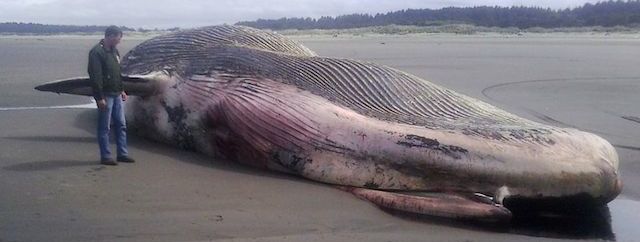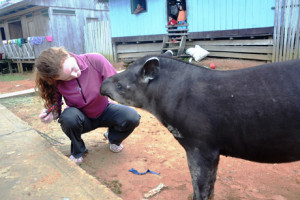Top 5 Uncommon Veterinary Stories You Don’t Want to Miss

These are five of the most popular stories I shared on Facebook and Twitter over the last couple of weeks. I know those platforms can be a little bit hit or miss at times, so I’m experimenting with a new biweekly wrap-up over here on the blog as well. Enjoy!
#1: A New, More Humane Way to Euthanize Stranded Whales
If you saw an animal slowly suffocating to death—and there was no hope of saving it—what would you do?
This is a question faced by those who respond to whale strandings all over the world. Aquatic animal veterinarian Craig Harms from N.C. State recently led a team in developing a more humane and environmentally friendly method of euthanizing these suffering creatures.
Get the full story from National Geographic here.
#2: Funded Aquatic Animal Veterinary Student Experience in Norway
Want to spend two weeks working with aquatic animal veterinarians in Norway? And get paid to do it?
The European Veterinarians in Education, Research and Industry has a new extramural study (EMS) award program in Aquatic Animal Health and Aquaculture. They will provide up to 1000 Euro to cover any expenses associated with participating in this two-week program.
The application due March 1. Although preference will be given to European veterinary students, it is open to all. More details here (PDF).
#3: Cornell Veterinary Student Publishes on Toxoplasma in Wildlife from Amazon Study
 Emily Aston recently published an article in the International Journal for Parasitology: Parasites and Wildlife based on her summer project based deep in the heart of the Amazon.
Emily Aston recently published an article in the International Journal for Parasitology: Parasites and Wildlife based on her summer project based deep in the heart of the Amazon.
Read this article for lots of fun details about the experience, and also to learn about where she got the funding that made this unique project possible.
Click here to begin your career in veterinary technology.
#4: On Neutering a Hippo
 Wildlife veterinarian Chris Walzer answers all your questions about the procedure in this new article from Scientific American.
Wildlife veterinarian Chris Walzer answers all your questions about the procedure in this new article from Scientific American.
Hint: the “highly mobile” testicles and anesthetic complications make it a little more difficult than you might expect.
#5: Veterinary Student Travel Scholarships from IVSA
 Did you know that every year the International Veterinary Students’ Association gives away 50-100 scholarships of up to $2000 each?
Did you know that every year the International Veterinary Students’ Association gives away 50-100 scholarships of up to $2000 each?
Yes, 50-100 scholarships each year, to fund travel expenses for international veterinary student experiences.
There are several application cycles annually, and the first deadline for 2014 is coming up on February 28. North American students are not eligible for this particular scholarship, but there are other opportunities for funding through the U.S. and Canadian chapters.



Comments
Thanks for the resources!
Thanks for the comment! 🙂
Wow! Thanks for the heads up about the highly mobile testicles. I’ve only worked with other mammals-and we’re usually able to secure them down when we’ve got to.
Haha, I hope in your line of work you are not thinking about securing testicles down for any reason!